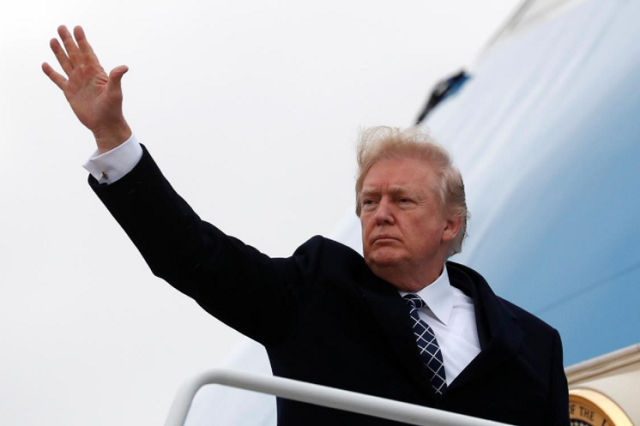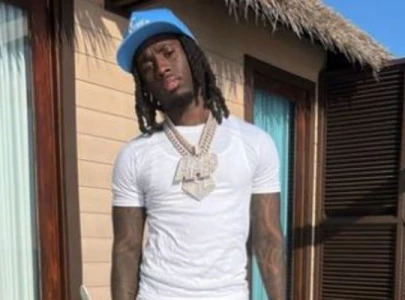
The countries offended condemned the outburst and human rights groups labeled the comment racist, given that Trump described people from largely white Norway as more desirable immigrants.
But supporters of the former businessman and reality TV star erupted in applause.
“Finally a president that says what we all think! You go @POTUS! #ShitholeCountries #shithole #America1st,” tweeted Marco Gutierrez, a Trump supporter and Congressional candidate from California.
Trump lawyer arranged $130,000 payment for adult-film star’s silence
Conservative blogger Stacy Rush dismissed criticism of Trump’s language as pitiful and a distraction from the bigger picture: “It is pathetic our country and particularly the MSM (mainstream media) is wasting time on the word #shithole when we have real issues that need to be addressed.”
But many from the worlds of diplomacy, academia and even etiquette experts cringed.
“The reality is that when you have to resort to it, it does send a message of insecurity,” said Diane Gottsman, author of Modern Etiquette for a Better Life, who advises against using profanity in either professional or social settings.
'Thanks, but no thanks' - Norwegians reject Trump's immigration offer
Trump’s remarks during a meeting on immigration policy that was held at the White House on Thursday were reported by a US senator at the gathering, who said on Friday that the president had used “vile, vulgar” language, including repeatedly saying “shithole.”
Trump denied on Friday that he had used such derogatory language. But he was condemned nonetheless in many African nations, as well as in Haiti and El Salvador, and by international human rights organizations.
During the 1960s Lyndon Johnson raised eyebrows by saying that, in politics, “chicken shit can turn to chicken salad.” Experts said the public were shocked by the profanity-laced Nixon tapes from the Oval office in the 1970s Watergate political crisis, and that people are less sensitive now.
London doctor thinks Trump's diet is 'awful' ahead of first presidential medical
“People have become accustomed to the idea that presidents swear,” said Julian Zelizer, a Princeton University history professor who studies the presidency. “But even with that, I think people still expect a certain amount of formality in public.”
Some academic research suggests there could be benefits to swearing in some contexts, from dulling pain to suggesting trust in social situations.
Benjamin Bergin, a cognitive science professor at the University of California San Diego who wrote a book on why people swear called “What the F,” said his research has shown profane speech can be perceived as more honest.
If swearing kept Trump from storming out of the negotiations, that could be positive, said Timothy Jay, emeritus professor of psychology at the Massachusetts College of Liberal Arts, and author of five books on profanity.
That was not enough to sway Gottsman, who advises people on business etiquette.
“My advice would be don’t do it,” she said. “When we are in a position of power, people look up to us.”

1720097164-0/BeFunky-collage-(9)1720097164-0-165x106.webp)
1730446133-0/BeFunky-collage-(7)1730446133-0-165x106.webp)


1730545312-0/Express-Tribune-Web-(16)1730545312-0-270x192.webp)
1730537528-0/BeFunk_§_]-(26)1730537528-0.jpg)
1730540824-0/BeFunk_§_]-(28)1730540824-0.jpg)
1730541755-0/BeFunk_§_]-(29)1730541755-0.jpg)







COMMENTS
Comments are moderated and generally will be posted if they are on-topic and not abusive.
For more information, please see our Comments FAQ